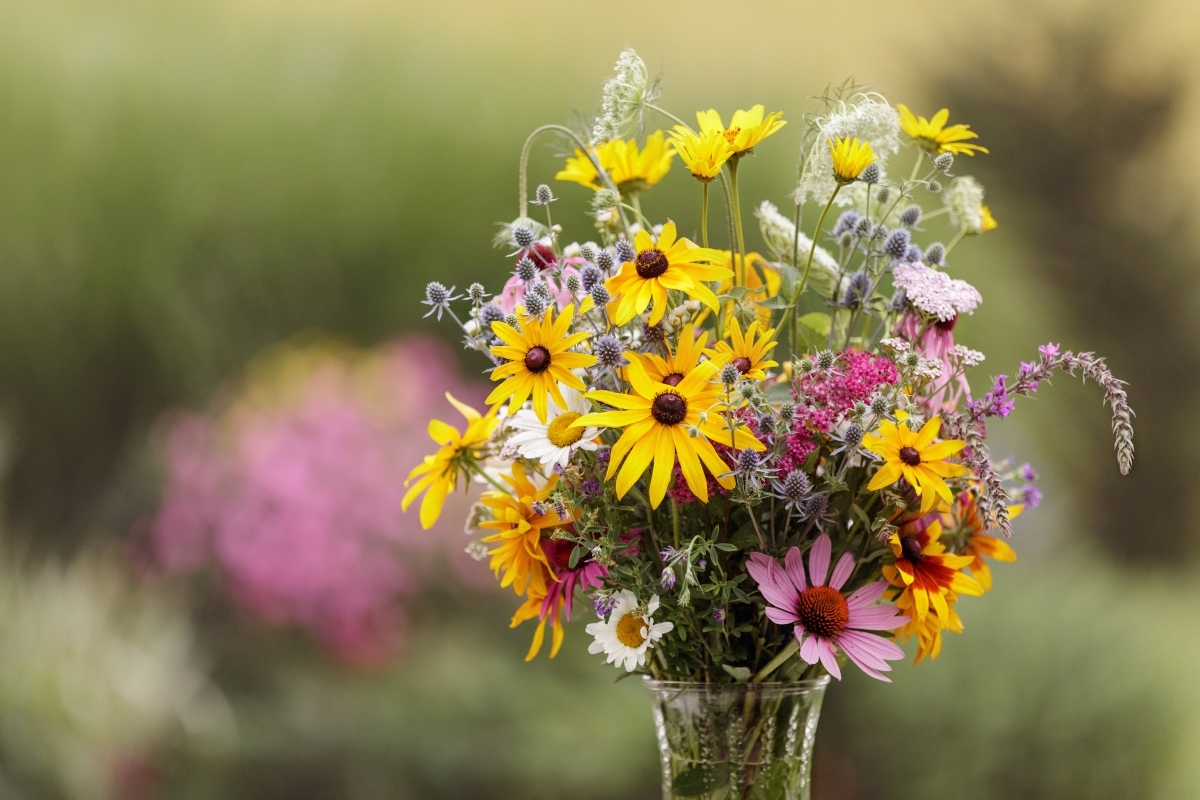We may earn revenue from the products available on this page and participate in affiliate programs. Learn More ›
A vase of fresh flowers works a bit like magic. It brightens up the home, brings the outdoors in, and can even say “I love you” without words. But if you’ve ever dreamed of dabbling in flower arranging or simply want to save money on your flower budget, many of the most popular cut fresh flowers are surprisingly easy to grow in your own cutting garden.
“Growing cut flowers can be for everyone, you just have to learn the basics first,” says Madison Jones, owner of Seal Point Farm, a sustainable flower farm in coastal Maine. Jones recommends beginning with easy-to-grow varieties of flowers, like zinnias, cosmos, and sunflowers. “You just have to be careful which cut flower seeds you’re purchasing,” Jones advises. “Some sunflower plants can be 8 feet tall with one massive flower!”
To get you started, we’ve put together this list of 15 foolproof flowers for garden newbies, including the best sunflowers for a cut flower garden and other easy-care plants. You’ll also find a few harvesting and care tips to keep cut flowers fresh and make your cutting flower garden even more productive.
1. Sunflowers (Helianthus annuus)
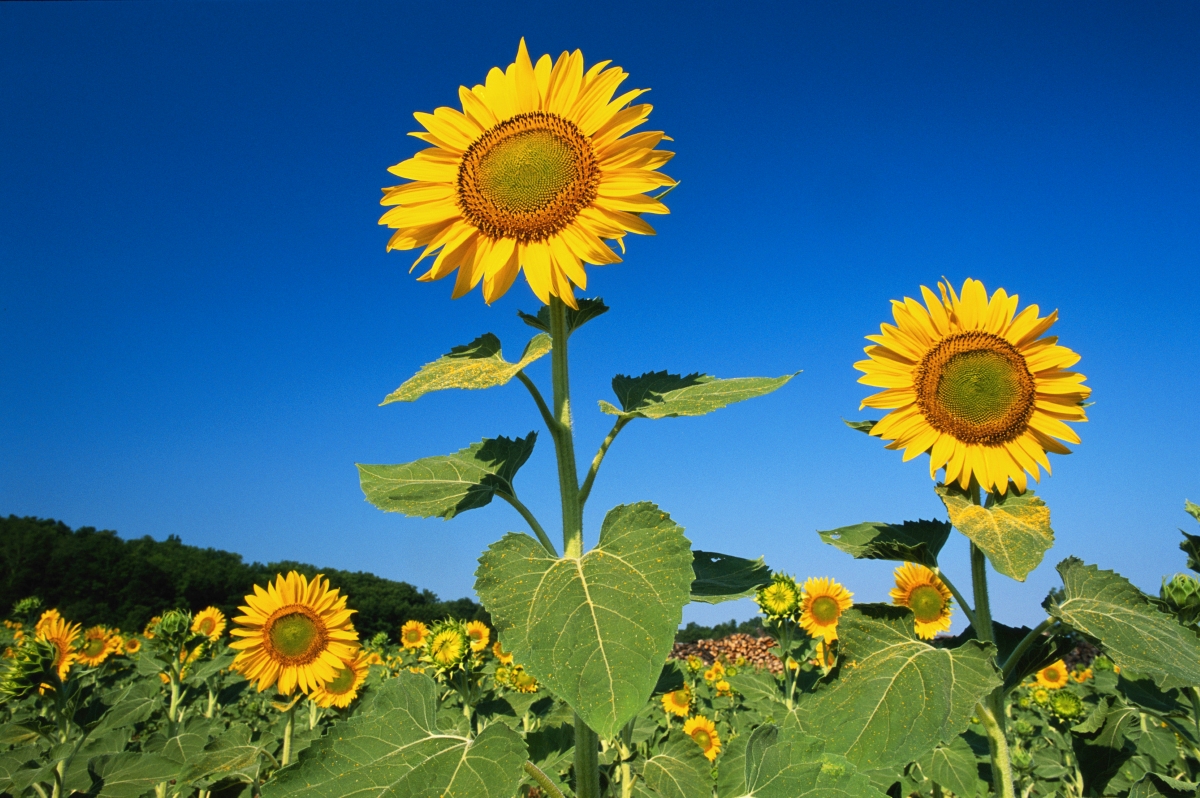
A classic for summertime bouquets, sunflowers usually sport golden yellow petals, but you can find sunflowers with maroon, lemon yellow, and white flowers too. Jones notes that Procut varieties are particularly good for bouquets since they produce single-stemmed flowers, but branching sunflowers can also be grown in a cut garden for smaller-stemmed arrangements. Dwarf sunflowers are ideal for small space gardens, while pollen-free sunflowers are perfect for mess-free designs.
Best For: Full sun, companion planting, containers
Bloom Time: Summer to fall
2. Zinnias (Zinnia elegans)
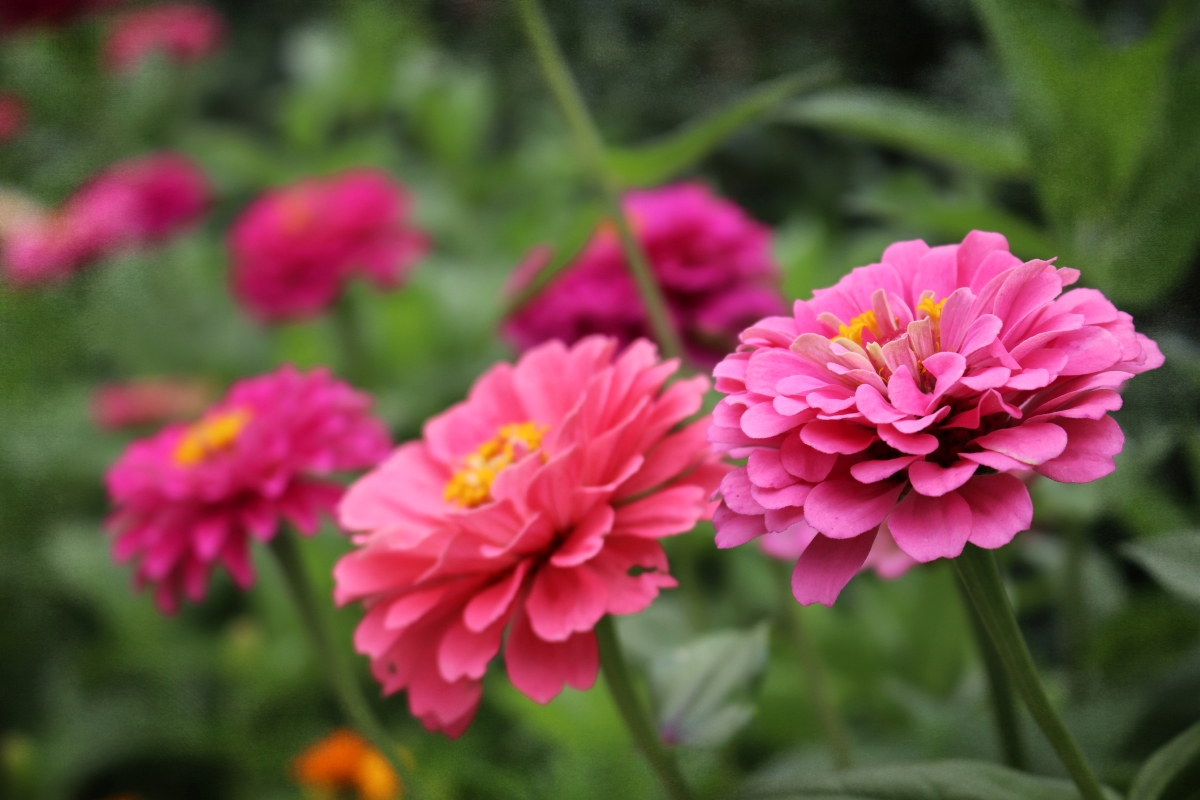
It’s no surprise that zinnias are one of the most popular cut flowers for gardens. Not only are these plants easy to grow from seed, but they come in different shapes, sizes, and colors to suit any floral design. While double-bloomed zinnias steal the show in bouquets, single-bloomed zinnias are ideal for companion planting and attracting pollinators.
Best For: Companion planting, garden borders, containers
Bloom Time: Late spring to fall
3. Peonies (Paeonia lactiflora)

If you want a cut flower that makes a big impact, peonies are hard to beat. These plants produce highly fragranced flowers in a dizzying array of pinks and white that can’t help but dazzle. Florists often use peonies on their own in bouquets, but a floral design class can help you discover even more ways to style peonies with other flower favorites!
Best For: Spring flowers, fragrance gardens
Bloom Time: Late spring to early summer
4. Cosmos (Cosmos spp.)
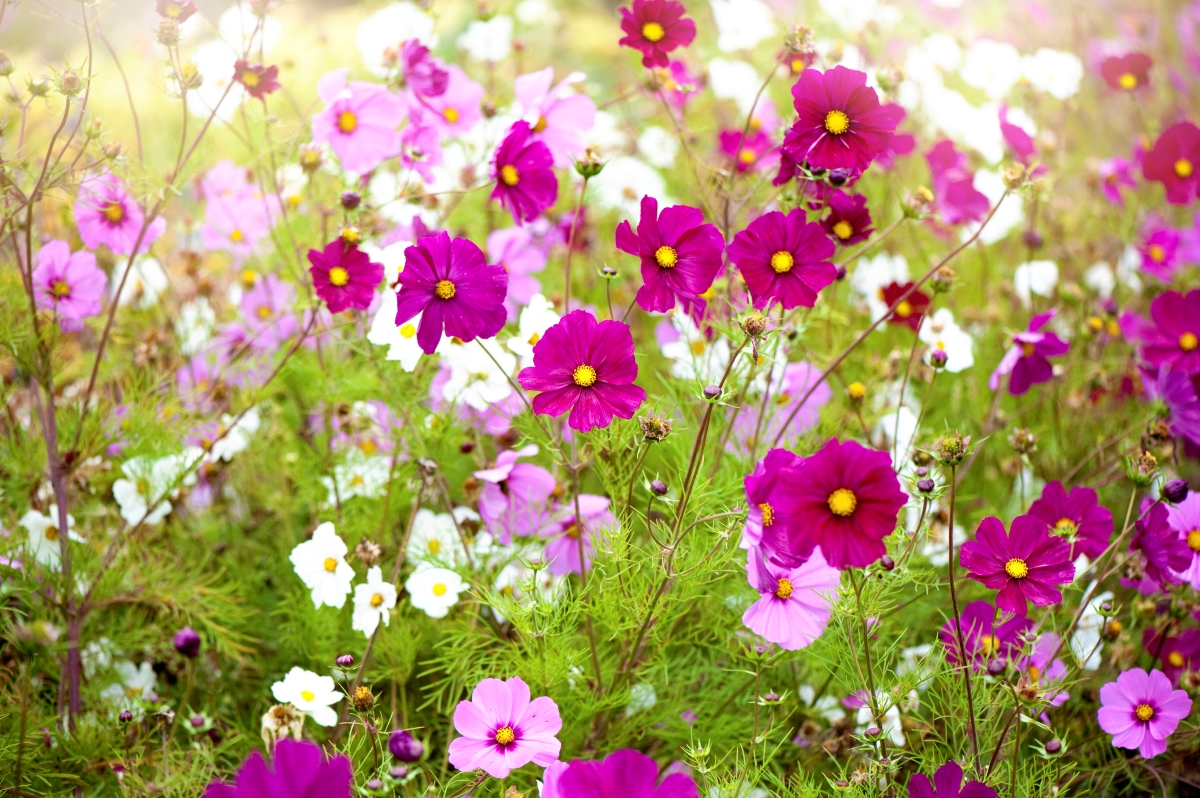
Whether you start them indoors in spring or directly sow them in the garden, cosmos are one of the easiest cut flowers to grow from seed. While these plants are mostly grown for their bold, pink and white blooms, their feathery leaves can also be used to add texture to bouquets. Harvesting cosmos encourages plants to rebloom and makes these cutting garden flowers even more productive!
Best For: Textured foliage, long bloom time
Bloom Time: Early summer to fall
5. Snapdragons (Antirrhinum majus)

With their curious shapes and playful colors, snapdragons bring an unexpected twist to floral arrangements. These plants typically bloom in spring and fall, but stop flowering when temperatures climb in summer. To enjoy snapdragons a bit longer, harvest flowers when about 2/3 of the buds are still closed.
Best For: Cool weather, unique form
Bloom Time: Spring and fall
6. Dahlias (Dahlia spp.)
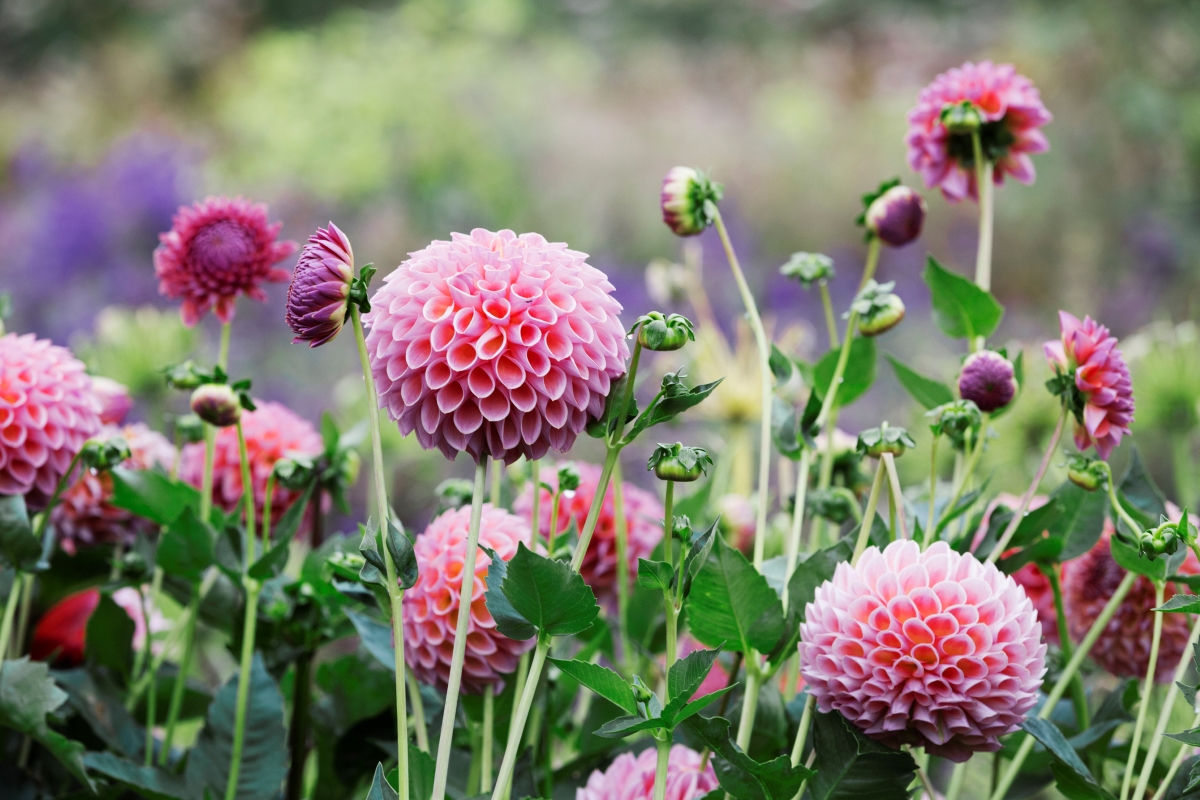
Anyone who loves bold colors and big blooms knows dahlias are must-have flowers for a cut garden. Ranging in size from 2-inch minis to massive dinner plate dahlias, you can find dahlias in varying colors, shapes, and sizes to suit your tastes. Just keep in mind that dahlias usually need staking and tubers should be overwintered indoors in zones 7 and below.
Best For: Big flowers, cottage gardens
Bloom Time: Mid-summer to fall
7. Sweet Peas (Lathyrus odoratus)
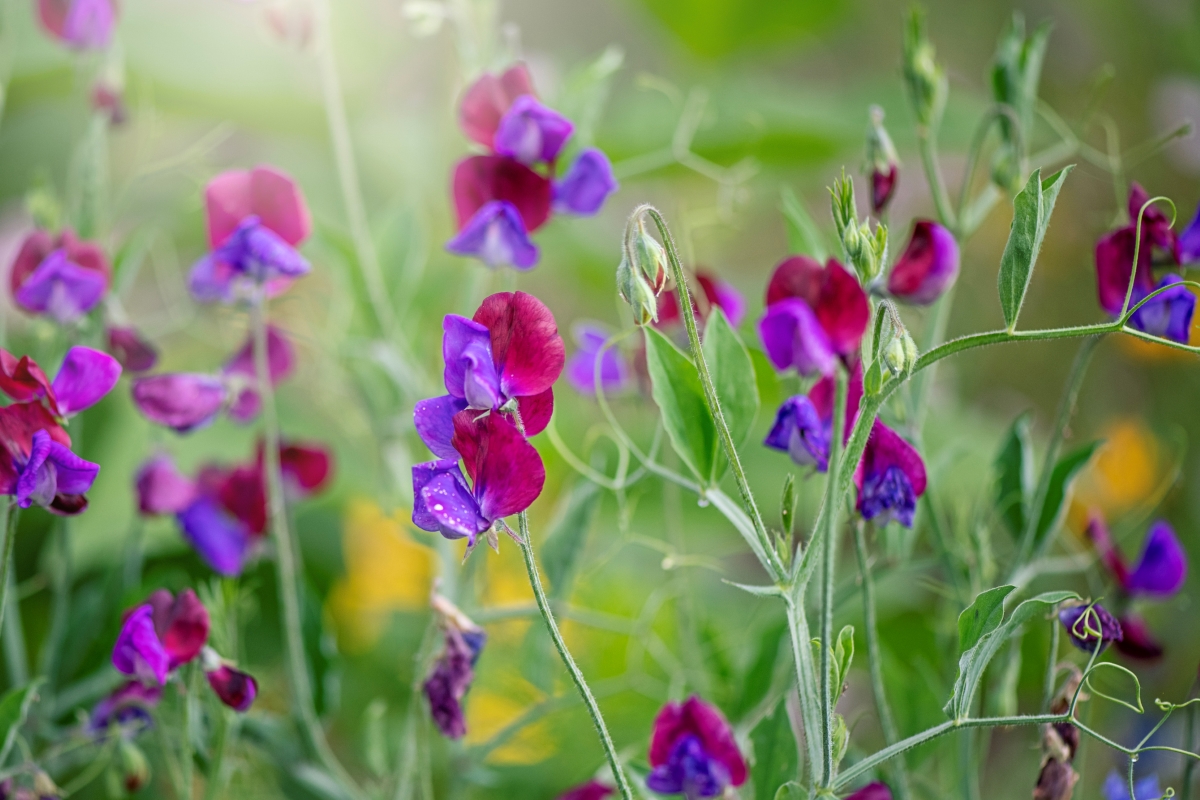
A top choice for spring and fall gardens, sweet pea plants handle chilly temperatures better than most cut flowers, but they languish in hot weather. Most sweet pea blooms emit a luscious fragrance, but some varieties are more fragrant than others. Harvest sweet peas when just a few buds have started to open and keep these plants near a trellis for tidy stems.
Best For: Cool weather, vertical growing, fragrance gardens
Bloom Time: Spring and fall
8. Daffodils (Narcissus spp.)
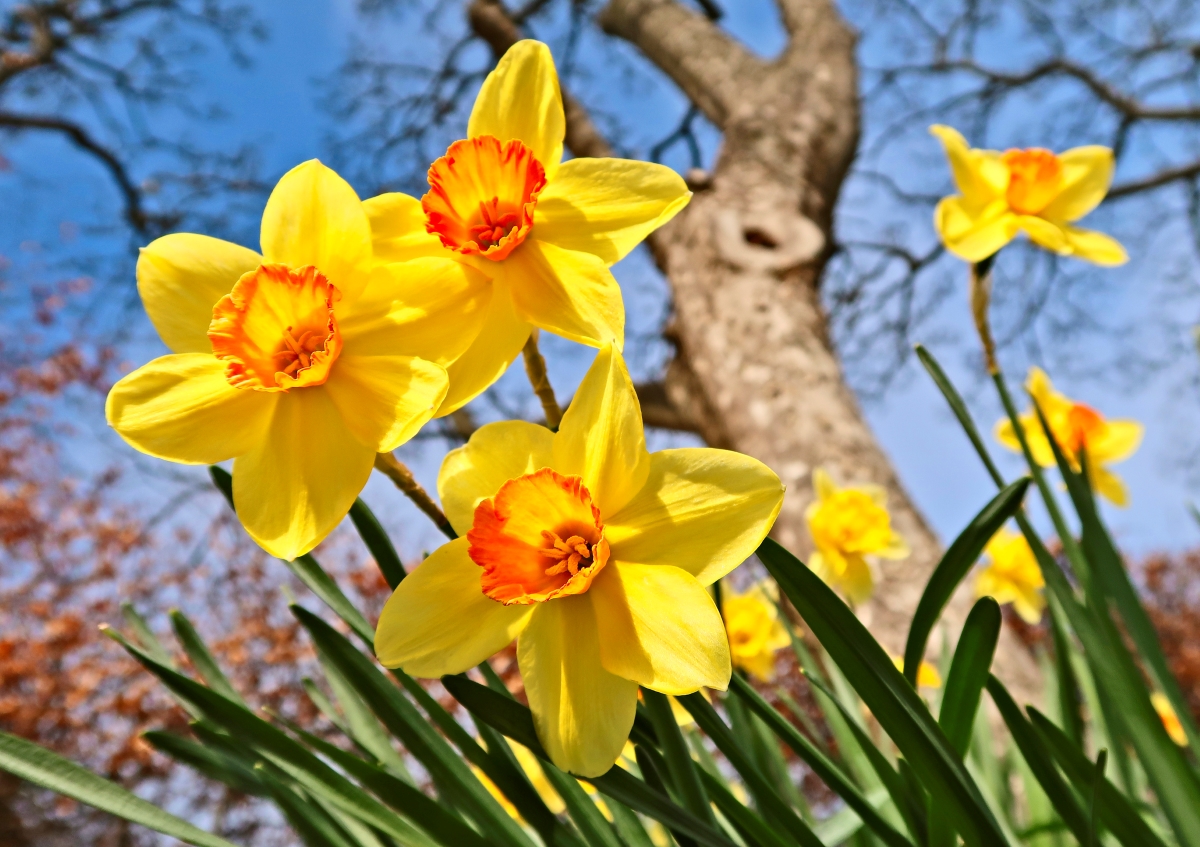
Invite spring in with early blooming daffodils, which flower in February and March in many areas. While classic yellow daffodils are the most popular, you can find daffodils in other colors, including white, orange, and pink. Even better, you can grow daffodils indoors in pots as long as you keep them away from pets and provide them with plenty of light, water, and fertilizer for indoor plants.
Best For: Cool weather, garden borders, containers
Bloom Time: Spring
9. Strawflower (Xerochrysum bracteatum)
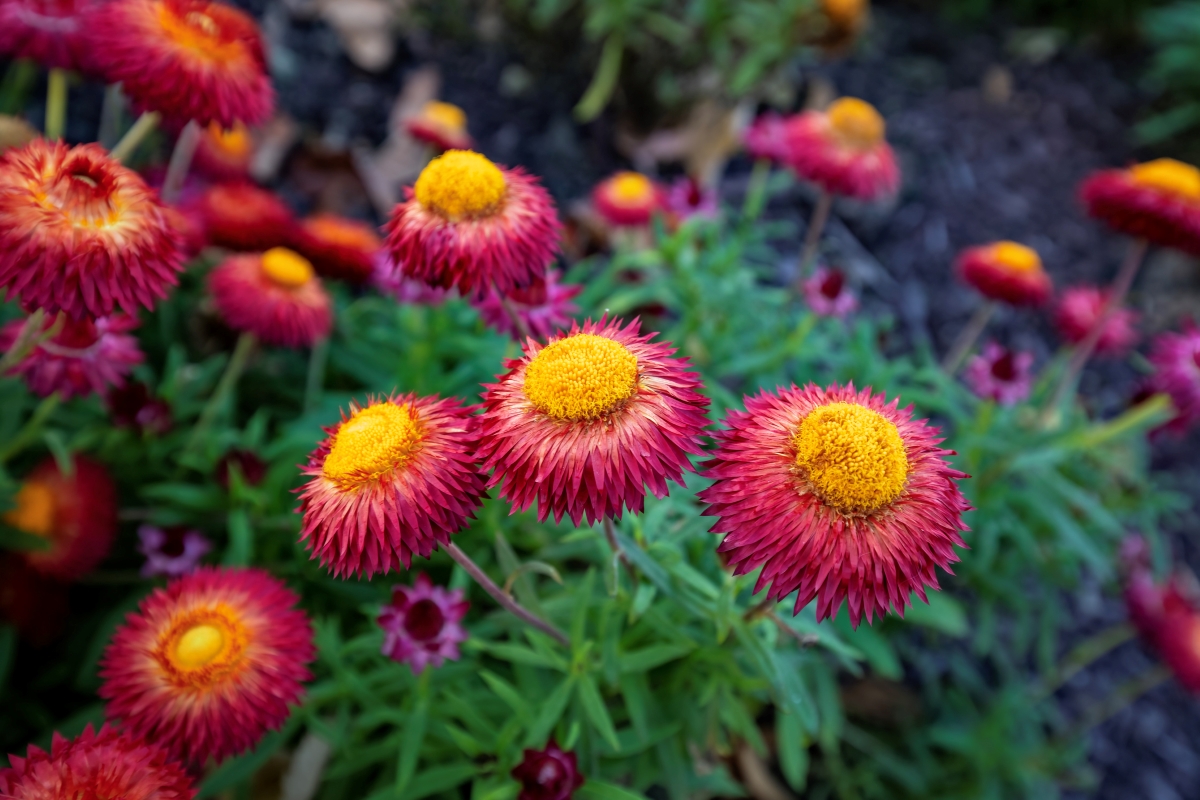
With a bit of practice, you can master the art of preserving flowers and enjoy homegrown, dried bouquets in fall and winter. But strawflowers make this task even easier. These late season flowers contain minimal moisture in their papery petals, which helps them dry out quickly and preserves their shape in dried bouquets.
Best For: Dried flowers, late season blooms
Bloom Time: Summer to fall
10. Lavender (Lavandula spp.)
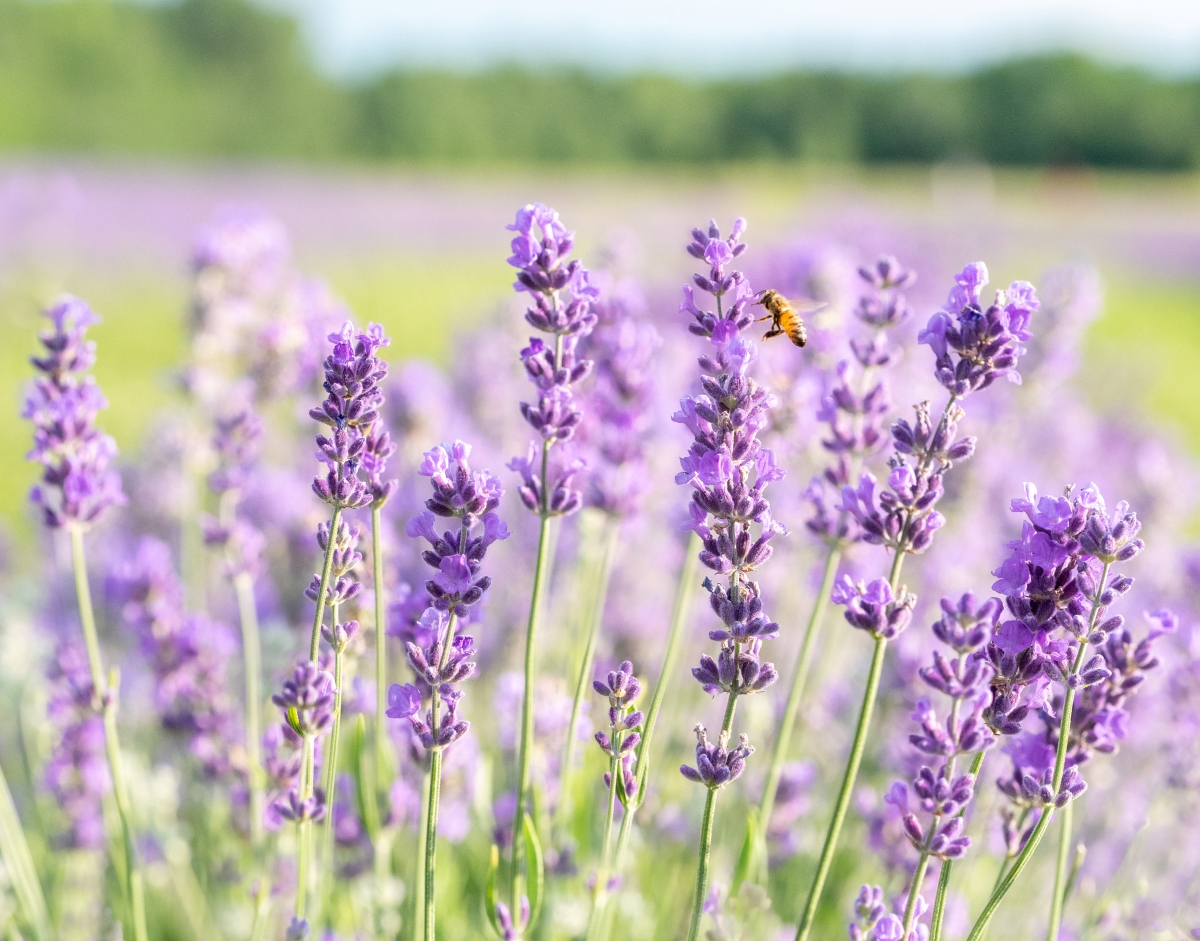
Lavender also dries beautifully, but it can be used fresh in bouquets and floral arrangements for delicate color and rich fragrance. Many types of lavender are available to home gardeners, but English lavender is a particularly versatile option, which can be grown as an edible or ornamental plant. Just be sure to grow lavender in well-draining soil to prevent soggy roots!
Best For: Fragrance gardens, dried flowers
Bloom Time: Summer
11. Tulips (Tulipa spp.)

Another springtime favorite, tulips bloom early in the year and then die back, leaves and all, by late spring. Thanks to their brightly colored petals, these plants are often included in plant subscription boxes, but you don’t need to limit your tulip blooms to container gardens. Tulips look especially appealing planted en masse in color-coordinated displays, but they can also be used for a pop of color in garden borders.
Best For: Large plantings, garden borders
Bloom Time: Spring
12. Yarrow (Achillea millefolium)
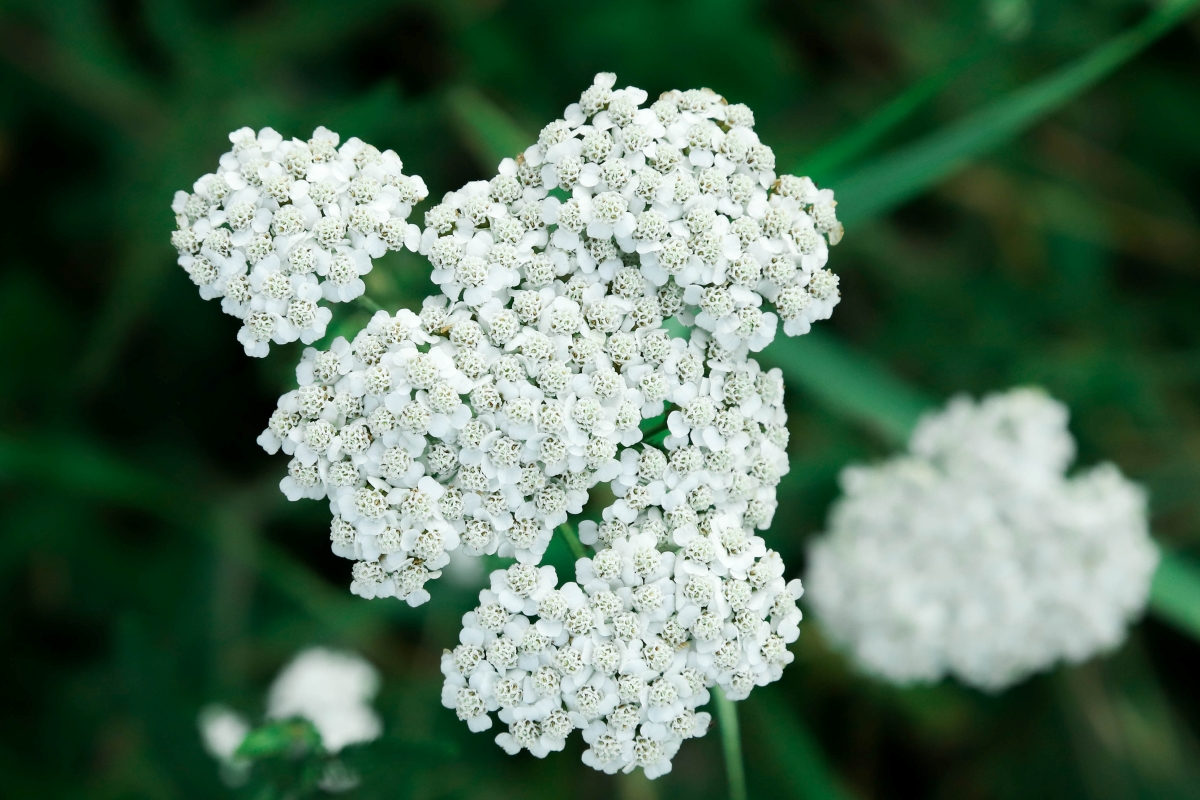
White yarrow is the most common form of the flower, but you can also find these pollinator plants in shades of pink and yellow. Use fresh yarrow as filler flowers in bouquets or hang-dry yarrow blooms upside down and add them to dried arrangements.
Best For: Pollinator gardens, dried flowers
Bloom Time: Late spring to fall
13. Rose (Rosa spp.)
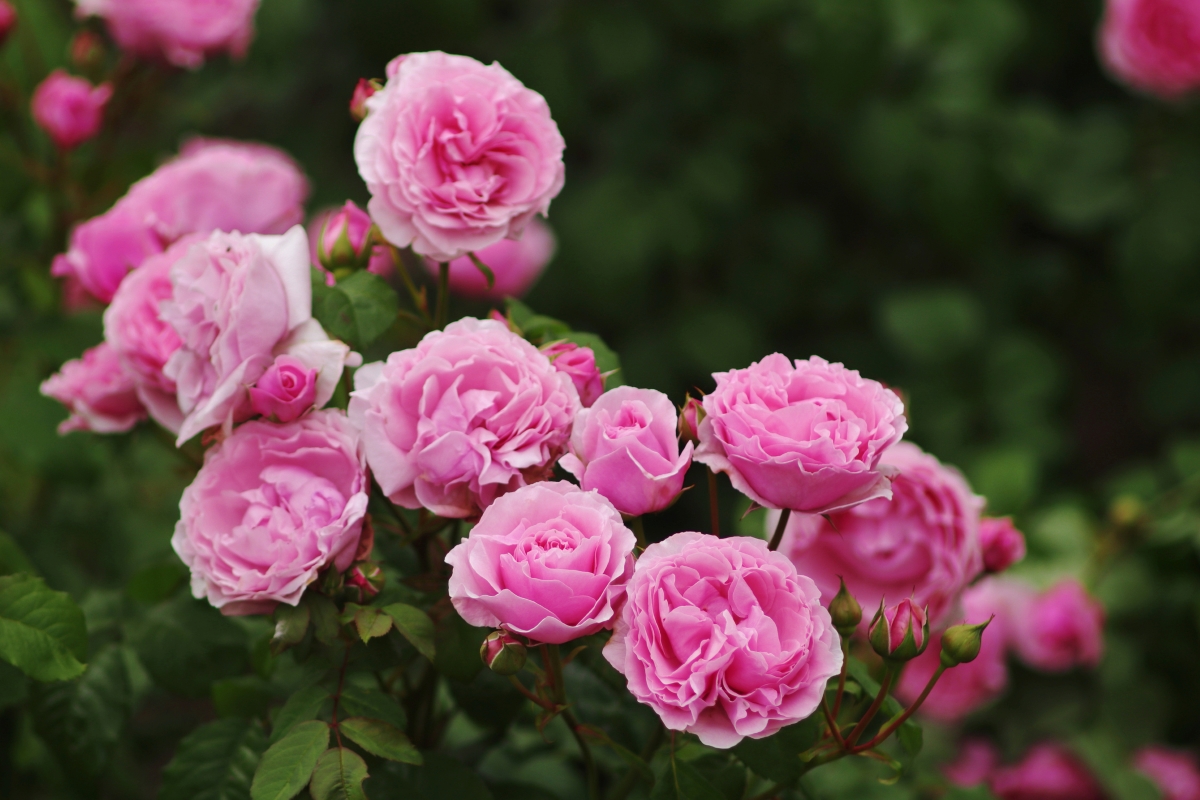
No list of cut flowers would be complete without roses. You can find roses in a wide variety of colors and sizes, and some even produce heavily fragranced blooms for scented bouquets. Hybrid tea roses are commonly grown in cutting gardens since they produce long, straight stems and big, scented blooms, but you can also find dwarf roses for container gardens or climbing roses for vertical growing.
Best For: Fragrance gardens, containers
Bloom Time: Late spring to fall
14. Bells of Ireland (Moluccella laevis)
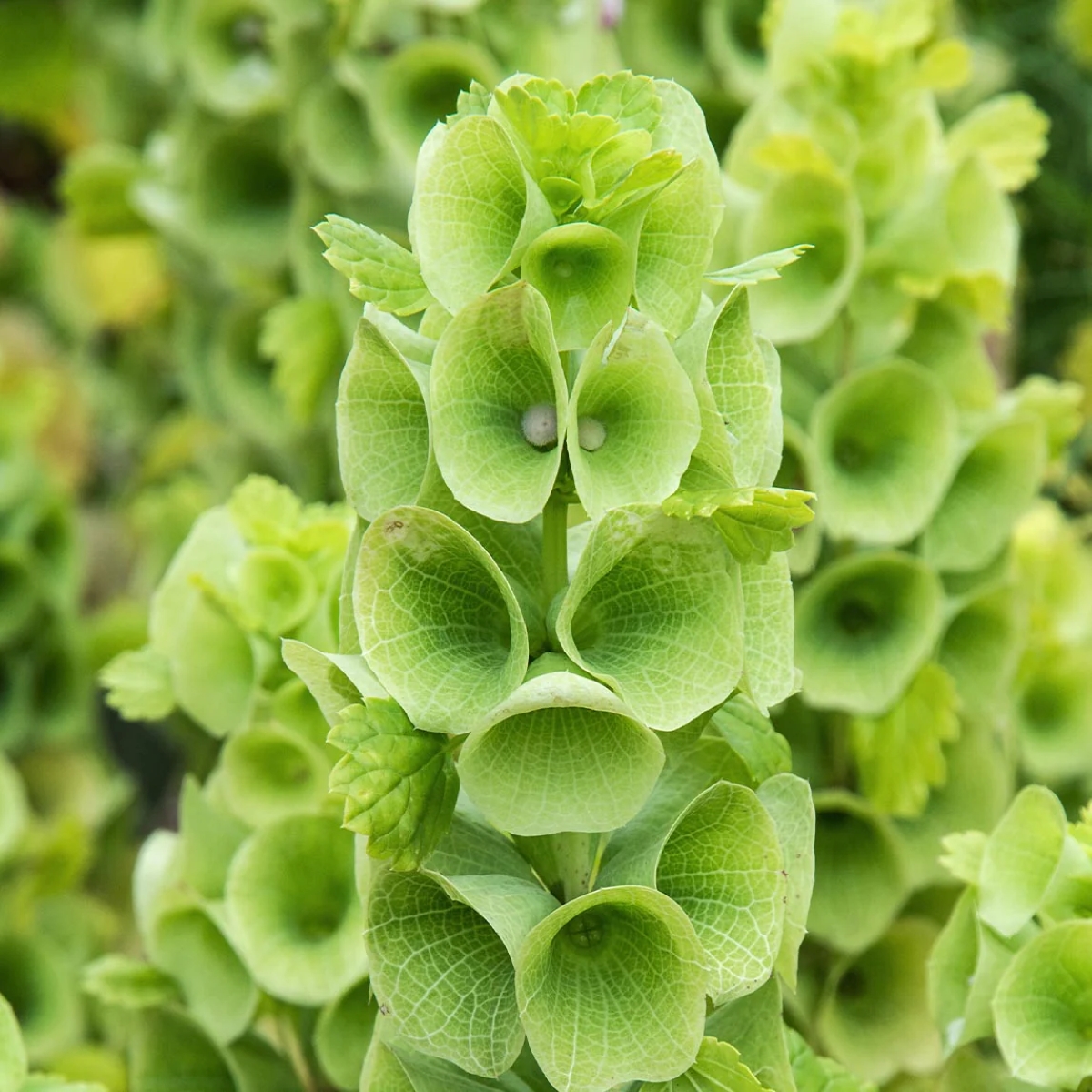
Bells of Ireland have an unusual look with green, bell-shaped blooms that stand out in any arrangement. These flowers last a relatively long time in a vase, but you can keep them fresh even longer by trimming the stems at a slight angle, using a clean vase, and making your own DIY flower food with 3 cups of water, 1 cup of clear lemon lime soda (not diet), and 1/4 teaspoon of bleach.
Best For: Dried flowers, cottage gardens
Bloom Time: Late spring to fall
15. Rudbeckia (Rudbecia spp.)
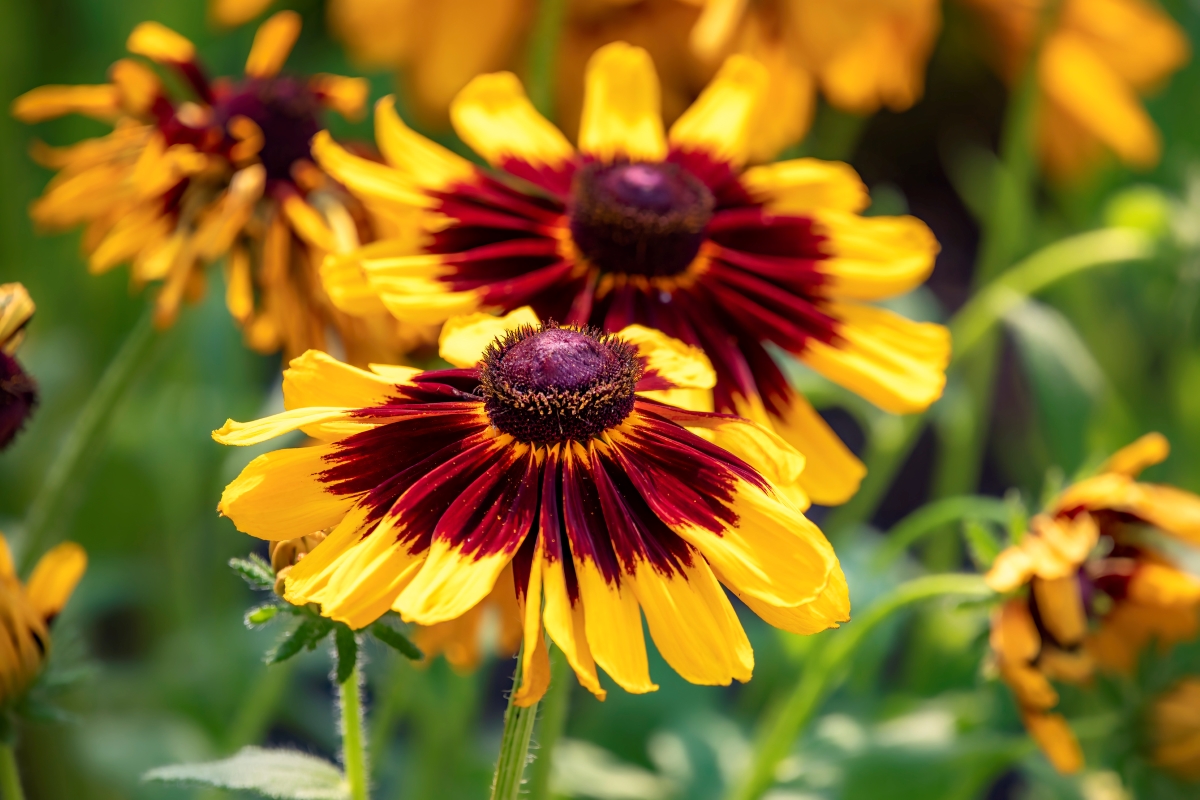
Black-eyed Susans are the most widely known type of rudbeckia, but you can find plants with different colored petals in shades of fire engine red, lemon yellow, and more. Plant rudbeckia in full sun and well-draining soil, and these low-maintenance plants will self-sow and share their protein-packed seeds with wild birds. Bouquets with yarrow and rudbeckia have a classic appeal, but you can mix and match these late bloomers with other fall flowers, like snapdragons and sweet peas too!
Best For: Late season flowers, attracting birds
Bloom Time: Summer to fall
